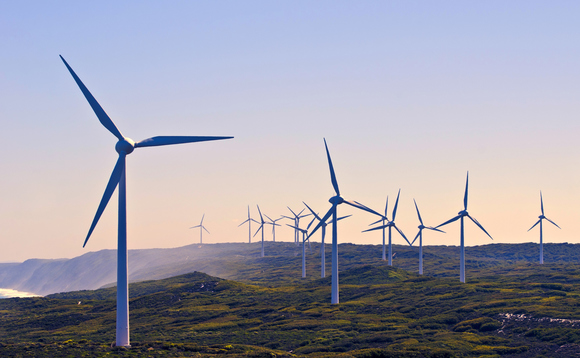Nearly 700,000 direct jobs could be created in England’s low-carbon and renewable energy economy by 2030, rising to more than 1.18 million by 2050, the Local Government Association reveals today in a new report.
The LGA is urging the Government to work with councils to develop post COVID-19 economic recovery options, including proposals for a jobs guarantee programme which can provide new opportunities, including in the low-carbon sector. It is calling for national skills and employment schemes and funding to be devolved to councils and combined authorities so they can work with businesses and education providers to train and retrain young people and older workers so they can benefit from these new local opportunities.
Its new commissioned report, “Local green jobs – accelerating a sustainable economic recovery”, shows that demand for green jobs will rapidly increase as the nation transitions to a net zero economy and will help to counter the unprecedented job losses due to coronavirus which are likely to increase further when furlough ends from October.
This new green jobs bonanza – across every region in England – will help the national economic recovery following the pandemic. The report predicts that:
- Nearly half (46 per cent) of an estimated 693,628 total low-carbon jobs by 2030 will be in clean electricity generation and providing low-carbon heat for homes and businesses, such as manufacturing wind turbines, installing solar panels and installing heat pumps.
- Around a fifth (21 per cent) of jobs by 2030 will be involved in installing energy efficiency products, such as insulation, lighting and control systems, while a further 19 per cent will be based on providing low-carbon services (financial, legal and IT) and producing alternative fuels, such as bioenergy and hydrogen.
- A further 14 per cent of jobs will be directly involved in manufacturing low-emission vehicles and the associated infrastructure.
- Between 2030 and 2050, the low-carbon workforce in England could increase by a further 488,569, taking the total level of jobs to more than 1.18 million by 2050.
The LGA said the impacts of the COVID-19 crisis are likely to be felt in our communities for some time to come.
Councils have long warned that centrally driven employment and skills support is often failing to meet, and respond to, local need. It is therefore vital that councils have the tools they need to ensure that all our diverse communities have the best possible chance of contributing to and benefiting from economic recovery. This includes local control over skills and employment support and increased national investment to create jobs and help young people and adults secure them.
During the pandemic, councils’ role as leaders of place has been emphasised as never before, for example by leading local efforts to trace the virus and providing billions in financial support to businesses.
The LGA says councils have been trusted to deliver and this local approach should be extended to skills training to help project where and when these jobs will be created and build the skills of local workforces. The LGA’s Work Local proposals – which would see councils and combined authorities working with partners to integrate and devolve employment, apprenticeships and skills initiatives so it is easier for all residents and employers to navigate – provide a sure-fire way of achieving this.
Soaring demand for green jobs will require a diverse range of skills and expertise to roll-out clean technologies. Emerging skills gaps requiring early intervention are the heat pump supply chain and professional services. Local areas need to be able match skills supply and demand through effective local targeting by giving councils and combined authorities the ability to work with local education providers and businesses to bridge gaps in NVQ-related skills so that the workforce is equipped to meet emerging demand.
The LGA is urging government to improve uncoordinated and limited funding streams by engaging with councils to understand how new funding for skills can be devolved to better meet and respond to local need, to support the creation of new jobs and develop a pipeline of skills at a local level.
Cllr Sir Richard Leese, Chair of the LGA’s City Regions Board, said:
“Councils are driving the climate change agenda at a local level, through ambitious projects and targets, which is beginning to influence local economic growth plans and skills programmes.
“Demand for green jobs is due to sky-rocket as we move towards a net zero economy and local government, with its local knowledge and expertise, is best placed to ensure the workforce in every region of the country can successfully surf the new wave of employment opportunities.
“Localising and devolving skills investment, back to work support and any job guarantee will be critical to ensuring everyone benefits from new local jobs, including these one million new low-carbon jobs.
“To help meet national climate change targets and capitalise on the green jobs revolution, councils need to be given long-term funding, devolved powers and easier access to complex government funding pots to help realise the Government’s target of being carbon neutral by 2050.”
CASE STUDIES
Kent County Council
Kent County Council has announced a climate emergency and committed to net zero by 2050.
Plans to extend the wind farm off the coast of Thanet would increase Kent’s renewable energy capacity by 340MW making it one of the largest producers of renewable electricity of any English county – and will require high-skilled and low-skilled jobs to deliver on the project. There are also plans to produce renewable hydrogen within the county which would make use of excess renewable electricity and offer a clean fuel to decarbonise transport and heat.
Further activities, such as the installation of electric vehicle chargers to support the uptake of ultra-low emission vehicles and the scaling-up of the county’s domestic and commercial retrofit, have reduced energy demand and the carbon intensity of Kent’s energy system. These activities will continue to be scaled up over the coming years and will require additional support for the low carbon supply chain to ensure the appropriate knowledge and skills are available.
Kent County Council provided funding to an SME to diversify from traditional training for the construction sector and to support the delivery of skills required to work within the offshore wind sector. The Council is providing local training academies with insight into emerging demands for new skills and the evolving skills gap in important sectors such as offshore wind.
As a leader in the energy transition, the Council will need to coordinate different stakeholder groups, including those within industry, further education institutions and individual workers, to come together and resource the supply chain and address emerging challenges and opportunities within the energy sector.
Portsmouth City Council
Portsmouth City Council has declared a climate emergency, with an ambitious net zero target set for 2030.
Activities underway include scaling up its low-carbon agenda with a hybrid electric ferry that runs to the Isle of Wight, and Brittany Ferries are now making trips to France running on LNG from Portsmouth International Port which is owned by the Council and aims to be the first carbon neutral port in the UK by 2030.
Further initiatives under development including participation with the Plastic Revolution (a new plastic eating enzyme research programme) and massive expansion of Portsmouth’s integrated Park and Ride facility to support the move to a possible Class B Clean Air Zone. The City’s Tipner West, a car-less and kerb-less new community currently under development, will integrate a low-carbon business zone that will have a focus on deep water marine and the University of Portsmouth’s research and development.
Much of the existing activity will directly support job growth and low-carbon skills within the area’s established maritime and marine sector. The Marine Enterprise Zone is an employer led group by the Navy is also looking at skills and development with support from the Southampton and Portsmouth Councils. The Portsmouth Advanced Manufacturing and Engineering Cluster (PAMEAC) will collaborate with schools to support careers within the sector, and ensure that the Apprenticeship Levy is effectively distributed across the sector to build productivity in line with the clean growth agenda. There is ongoing work to continue strengthening links with further education colleges and the workforce which includes formal plans and working with the Apprenticeship Levy including working with Solent’s Apprenticeship Hub. The Council is considered a key facilitator of much of this work.
The work done to date in close collaboration with the city’s strong marine and maritime sector demonstrates the city is shaping up well to participate in the low-carbon transition by leveraging its existing strengths, expertise and resources – integrating this approach to all of its energy related activities will be the next step.
West Yorkshire Combined Authority
The West Yorkshire Combined Authority has declared a climate emergency and, with the Leeds City Region Enterprise Partnership (the LEP), has made the commitment to achieve net zero by 2038 at the latest.
The energy sector is identified as fundamental to the region’s success, offering the highest level of productivity of any sector while being a relatively small employer of less than 1 per cent of the workforce. Decarbonisation could therefore bring growth to the energy sector and make a strategic contribution to the performance of the West Yorkshire economy. A Clean Growth Audit has been produced, which makes early suggestions of sub-sectors where there may be a skills gap including construction, smart cities and agri-tech.
Flagship work includes Drax’s operations which are being decarbonised via fuel switching to biomass and Combined Cycle Gas Turbines (CCGT). Over the next decade, the power plant will trial world-leading Carbon Capture Usage and Storage (CCUS) technology to enable the power station to deliver net emissions reductions. The opportunity and required expertise here means there is scope for the region to be instrumental in the UK’s wider decarbonisation efforts as part of the negative emissions policy for Bio Energy with Carbon Capture and Storage (BECCS). Furthermore, some of the region’s core manufacturing operations including glass manufacturing, agrochemicals and food and drink will be required to transition to low-carbon solutions in the future if the net zero target is to be achieved – this represents an opportunity to scale-up low-carbon competences.
The Combined Authority is identifying sub-sectors that will require skills and training support, e.g. in scaling up domestic energy efficiency retrofit and increasing the pace and scale of deployment of heat pumps. Ensuring collaboration between stakeholders (including further education, employers and individuals) will increase the understanding of the low-carbon sector challenges and continued coordination with the LEP and WYCC (consortium of colleges) will be ensure skills provisions are available and that the low carbon sector is considered a cornerstone of regional activity.
Help keep news FREE for our readers
Supporting your local community newspaper/online news outlet is crucial now more than ever. If you believe in independent journalism, then consider making a valuable contribution by making a one-time or monthly donation. We operate in rural areas where providing unbiased news can be challenging. Read More About Supporting The West Wales Chronicle



























